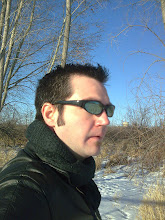
The late Kurt Vonnegut's most renowned work, Slaughterhouse-Five, is the author's product of conveying the horror of living through the Dresden Firebombing in 1945.
I had first heard of Kurt Vonnegut a few years ago, during that week or so that I thought it would be fun to play Second Life, and author Kurt Vonnegut was going to make an avatar of himself and have an online lecture. This must have been in early 2007 or late 2006, because I recall when he died in April of '07.
Enjoying some free time of late, I saw fit to read this acclaimed piece.
The book itself is once of controversy due to some strong and explicit language. Vonnegut explains "that's the way war is..." It shows up on the American Library Association's list of "The 100 most frequently challenged books of 1990–2000" This list has other infamous works such as "The Adventures of Tom Sawyer" and "Where's Waldo." I found these two a little odd amidst books that, along with this one, probably aren't good bedtime stories for little Timmy.
The story is a convoluted tale of short sections, the author indicating it might not make sense, but little about the firebombing did, and this was the only way he knew how to convey this properly. The plot involved time traveling and space aliens. Not your typical story about WWII, but that keeps things interesting. The thesis here is that we can push to get rid of nuclear arms, but firebombing with conventional weapons like this instance are profoundly devastating. Vonnegut concedes that trying to stop wars is like trying to stop the glaciers; wars have always and will always be fought.
A subplot involving the aliens interested me in their blatant acceptance of predestination due to their outside-of-time existence. They found free will to be a nonsensical concept. As they existed outside of time, all things were happening, all at the same time, and nothing could be done to prevent or alter those things that were at once, going on. Thus, while we may perceive having control, we in fact do not. The choices we make are always being made and always will turn out the same. We feel like we have free will because we do not know what choices we are always making; we do not perceive life outside of time. Ultimately, those choices are fixed though, at least according to the aliens, and John Calvin.
The argument has long since been that God exists outside of time, as do the aliens in this book. In seeing all that has ever occurred and will ever occur in the future all as present tense, God need not have a causer, going back to my concern on the Cosmological Argument on the Existence God from an earlier entry. In short, everything is caused by something, some greater force, leading either to the creation story of Genesis or the Big Bang Theory, depending on your view. These two events were caused by some greater force, God in the Genesis story, some unknown cause in the Big Bang Theory, which some have argued is, in fact, God. But where did God come from? If God is, not being finite, but having infinite existence outside of time, it is irrelevant to our conception of everything how he may have come to persist. Still, this seems like a cop-out. Insisting on God's existence being inconceivable and therefore not something worth pondering doesn't do much for my inquisitive nature. The two year old in me insists, "why?"
Oh, so the book was interesting, and yes, its controversial. But if you can find me a book about the Firebombing of Dresden that is not controversial, well, maybe it should be.



No comments:
Post a Comment